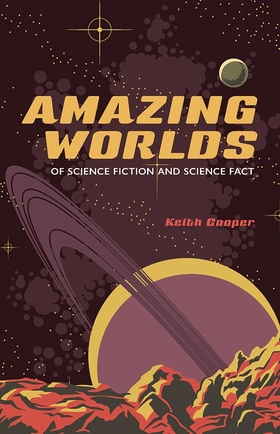What’s wrong with scientific papers? Ask physicist and science fiction author Gregory Benford, who tackles the question in a wonderful pastiche for COSMOS. “The sad truth is that hardly anybody ever reads a paper all the way through,” Benford writes. “A study by a British physics journal showed that the average number who get through the whole paper was 0.5 – and that included the author! Apparently, most scientists can’t bear to reread their own work.”
Benford’s ‘study’ appears under the title “How to write an awesome scientific paper.” Using the nom de guerre Bea Realist, he skewers over-inflated prose and bloated egos without mercy. A sample, touching on the awful overuse of the passive voice:
The scientist is, by his reliance on the passive voice, hobbled, leading to sentences like this one, in which the subject, a lumpy noun, is acted upon by pallid adjectives and wan verbs, all without ever saying exactly who the action is done by, so that the sentences get longer and longer as you read and never seem to end, even when there is clearly nothing more to say in the sentence, at which point the reader sometimes gets a meager little semicolon; this gives him a rest, so that he can go on and read another long phrase without really learning anything more, because the writer’s hand has kept on moving even though his brain is disengaged.
I’ll never approach the footnotes in an Acta Astronautica paper again without recalling such advice as “A scientist will always give greater attention to colleagues who cite him, if only to find where in the text you mention him.” And this: “The highest-risk strategy is to cite someone in the list of references but not in the text. Then he will have to read the whole paper.”
Don’t miss this send-up, which elicits a delighted chuckle of recognition again and again (and thanks to Fred Kiesche for the pointer). My only caveat: Lumpy, sodden prose is hardly the reserve of the sciences. Take the word of a former medievalist, who once wandered through acres of turgid papers on Anglo-Saxon alliteration and the metrics of Beowulf. To quote from some of these would be a merciless act. But to see academic writing in the act of genuine hara-kiri, may I suggest a reading tour through a variety of sociological journals? Any university library can help.


LOL!
I have had this experience on more than one ocassion.
-Zen Blade
This is old news. A few years back some MIT students developed a random generator for scientific mumbo jumbo papers. I had fun playing around with it a few times (it’s on the web). Pretty funny stuff.
Science writing has gone the way of art nouveau – all bluster, and crappy product.
Personally, I think it’s sad that so many have bought into this silliness. Science should be written in the form of a report. Everything should be clear, concise, and written in the first person. I’ve read that writing in the first person alone, cuts about 20%.
They should also use simple language (increases comprehension and broadens the audience) and they should keep it short (succinct).
I wonder if someone with a really neat idea who wrote a simple paper, would have a prayer of being published?
The Law profession can do pretty bad too. When i was in high school, i went to a town meeting where they discussed proposed by-laws. These were passed out in advance. At the meeting, several questions were asked.
The proposed law:
Citizens will not have no more than six dogs in Zone 3 and 4 but not Zone 7.
The question:
I live in Zone three, and have a dog. Do I have to get six more dogs?
And so on.